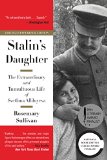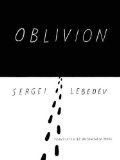Summary | Excerpt | Reviews | Beyond the book | Read-Alikes | Genres & Themes | Author Bio

With ten years of meticulous research from newly-opened archives, Montefiore has written four hundred-sixty pages, including forty-four of source notes, seven of bibliography, six of
acknowledgments, and thirty-two of photographs. What could have been a tedious task to read is instead, as described by many notable reviewers, "gripping, brilliant, and astonishing."
Young Stalin superbly achieves the author's intention: to show the development and early maturity of the ultimate politician. What missing empathy in Stalin's upbringing allowed him to kill so easily, but equally what qualities equipped him so well for political life? Stalin's success was at least partly
due to his unusual upbringing that combined a seminary education and street violence; he was
that rare combination of intellectual and killer, "half Osama bin Laden, half Tony Soprano
.... incredibly complex and subtle, both diabolical and terrifyingly seductive".
Montefiore's second book on Stalin (following Stalin: The Court of the Red Tsar) can be appreciated on so many levels—for its depth of
research, for its detailed historical perspective and for giving us such an intimate look at Stalin's life. As Montefiore concludes, Stalin "could not have risen to power at any other time in history: it required the
synchronicity of man and moment."
The story begins before Stalin's birth with his parents—two strong-willed people with different views. A religious mother who wants her son to be a priest, and a drunken cobbler for a father who beats him
often. A schoolmate's memoirs record that it was through his father "that
he learned to hate people," and through his mother's dogged determination that he was
admitted to the seminary where he was expelled for reading forbidden books. His
punishment for reading these books taught him, in his own words, "surveillance,
spying, invasion of inner life, violation of feelings"—all which he would
recreate in his Soviet police state.
Stalin the schoolboy, like the politician he became, was a bundle of
contradictions. As a child he was known for his web-feet, his
pockmarks, his lame gait and a left arm shorter than the right - a vicious
little urchin, and a natural leader, he was constantly in street fights, but he
also wrote poetry, had the best voice in the choir and was the smartest kid in
class.
At times the book reads like a page-turning espionage novel, beginning with a
1907 bank robbery masterminded by the 29-year-old Stalin and led by gang leader, Kamo
who was "completely enthralled" by Stalin (read the excerpt). Throughout his life,
Stalin's "detached magnetism" would attract and win the devotion of amoral,
unbounded psychopaths like Kamo.
Stalins's heists and killings, conducted with meticulous
attention to detail and secrecy made him the main financier of the Bolshevik
Center. It also proved his value to the one man who could, at that point in
history, put him onto the Russian stage - Vladimir Lenin. Lenin's famous quote
after the coup could aptly apply to Stalin. "It makes one's head spin to pass so
quickly from persecutions and living in hiding to power!"
The action scenes in the book have all the elements of a Hollywood blockbuster: murder, suspense,
love, tragedy and, yes, even comedy. It's very possible that, someday, Young Stalin
will be coming to a theater near you.
Young Stalin is highly recommended, but proceed
with caution: It is a chilling and haunting account that will stay with you long
after you have closed the book.
![]() This review was originally published in The BookBrowse Review in November 2007, and has been updated for the
October 2008 edition.
Click here to go to this issue.
This review was originally published in The BookBrowse Review in November 2007, and has been updated for the
October 2008 edition.
Click here to go to this issue.

If you liked Young Stalin, try these:

by Rosemary Sullivan
Published 2016
A painstakingly researched, revelatory biography of Svetlana Stalin, a woman fated to live her life in the shadow of one of history's most monstrous dictators—her father, Josef Stalin.

by Sergei Lebedev
Published 2016
A masterful novel about the search for the truth about a shadowy neighbor represents an epic attempt to rescue history from the brink of oblivion.
Your guide toexceptional books
BookBrowse seeks out and recommends the best in contemporary fiction and nonfiction—books that not only engage and entertain but also deepen our understanding of ourselves and the world around us.